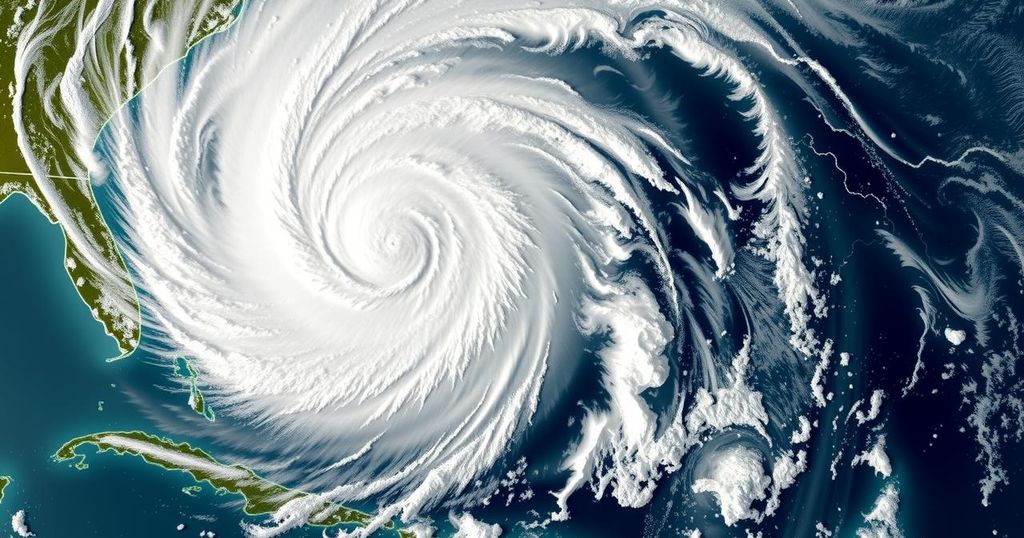Cyclone Chido is advancing toward Comoros, Madagascar, Mayotte, and Mozambique, threatening the region with high winds and heavy rains. Authorities have enacted safety measures, including evacuation orders, especially in northern Madagascar and Mozambique. The cyclone poses risks of flooding and waterborne diseases, prompting preparations for possible humanitarian aid in the aftermath.
Cyclone Chido, a formidable tropical storm, is advancing towards the islands of Comoros, Madagascar, and Mayotte, as well as Mozambique on the African mainland. This cyclone is set to unleash intense winds and substantial rainfall, endangering the populace in these regions. Preparations are underway, particularly in Comoros, where school closures have been mandated in anticipation of the storm’s arrival by early Saturday.
The French territory of Mayotte is also under vigilance, with a red alert issued by the French national weather service. Mozambique has declared a red alert affecting the northern provinces of Cabo Delgado and Nampula, where over 2 million individuals may suffer the intense impact of Cyclone Chido. The Mozambique National Meteorological Institute has predicted wind speeds reaching 200 kph (124 mph) upon the cyclone’s landfall.
Madagascar is bracing for Cyclone Chido’s repercussions, with residents receiving alerts to undertake safety measures. In the northern region of Diana, evacuations are in progress as the storm’s assault is projected to be most severe there. Authorities initiated the provision of food and emergency supplies in vulnerable areas earlier this week.
The French government is mobilizing assistance for Mayotte to mitigate the cyclone’s potential damages. Emergency personnel and resources are being dispatched to support recovery and rescue operations in the impacted areas. Climate specialists indicate that intensified cyclones in this region are a byproduct of climate change. Cyclone Chido risks inflicting flooding, landslides, and enabling the spread of waterborne diseases, including cholera, dengue fever, and malaria.
As the cyclone season proceeds, it is of utmost importance for residents to stay informed and adopt critical safety measures in light of impending natural dangers.
Cyclone Chido is a notable event within the context of increasing cyclone threats in the Indian Ocean due to climate change. This storm exemplifies the severe weather patterns that are becoming more frequent and intense in recent years. Various governmental bodies across nations are reacting proactively by employing emergency measures, including evacuations and alerts, as they aim to safeguard the populations from the imminent dangers posed by such natural disasters. The capacity for local authorities and international support systems to respond effectively remains a crucial factor.
In summary, Cyclone Chido poses a significant risk to Comoros, Madagascar, Mayotte, and Mozambique, threatening millions of lives with severe weather conditions. The proactive measures being taken by local authorities, including evacuations and alerts, highlight the urgency of the situation. Furthermore, the implications of climate change on the increasing intensity of cyclones necessitate ongoing attention and action to protect vulnerable communities. Residents are urged to remain vigilant and prepared as the cyclone approaches.
Original Source: www.inkl.com






